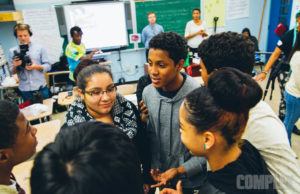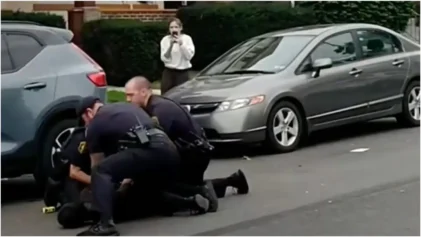
The New York Regents exam is a test that has tortured New Yorkers for generations. It was first introduced in the late 1800’s as a way to test the rigors of school instruction in the state. To meet the requirements for graduation, all public high school students have to pass five Regents Exams, in math, science, global history, U.S. history and English. Students are allowed to take the exams as many times as needed until they either pass or age out of high school. As a result, some students fail the exam many times. For example, in 2011, just 56 percent of the students in New York City passed the Regents exam in global history.
The innovative hip hop program is called Fresh Prep and it specifically targets students who have already failed the exam. The program was started in 2009 by a performing arts teaching collective called the Urban Arts Partnership, sending performers into schools to use rap lyrics and role-playing to drill students on the test topics.
While many might dismiss the idea of using this musical form as a teaching tool, there’s one fact that can’t be denied: It works. When it first went into Manhattan’s New Design High School, it focused on a class where all of the students had failed the global history exam at least once and some as many as five times. After just 12 days of Fresh Prep, 79 percent of the students passed the exam.
In the last six years it has expanded to 21 classrooms in nine high schools throughout the city, focusing on the world history, U.S. history and English exams.
“It’s based off of Gardner’s Theory of Multiple Intelligences, which states that children learn in more than one way,” James Miles, a comedian and actor who’s been with Urban Arts since 2008, said in a profile of the program on complex.com. “Fresh students learn the content logically in a book, linguistically in a rhyme, musically from the original hip-hop songs, and kinesthetically moving the body to the music allowing for mastery of the subject. In class, students listen to music, memorize the music, perform the music, and pass the test because of the music.”
In one class at New Design High, as the performers rolled out dense rap verses that contained chunks of global history, the performers and students made their way through a history of civilizations without the use of a textbook—instead passing around the room an inflatable globe that doubled as a talking shell/microphone.
“It’s a lot of stuff when you’re sitting in a class for 45 minutes,” said Gelyanne Rivera, 15, at New Design High School. “I get bored. With this, I’m participating and asking questions.”


